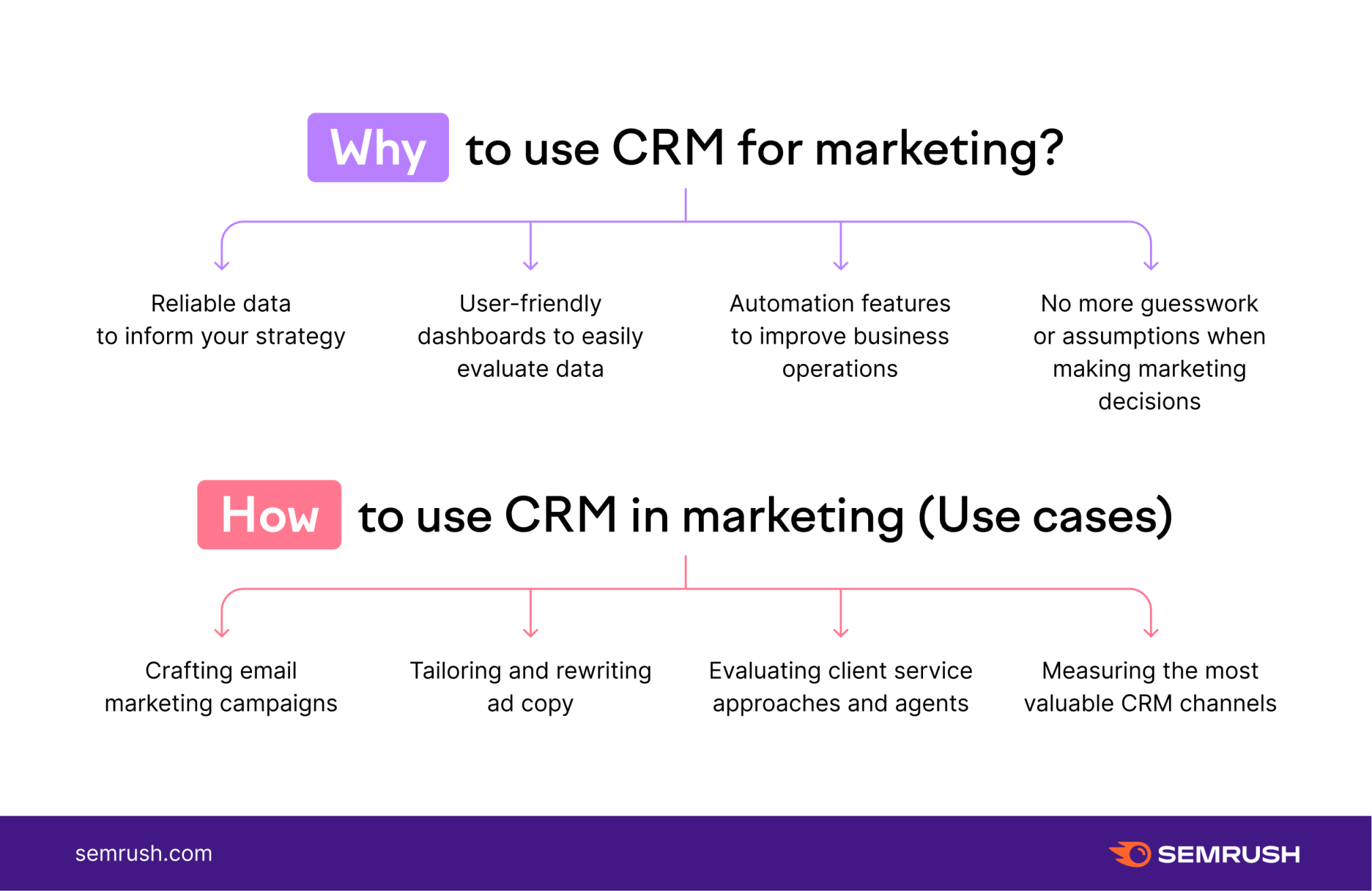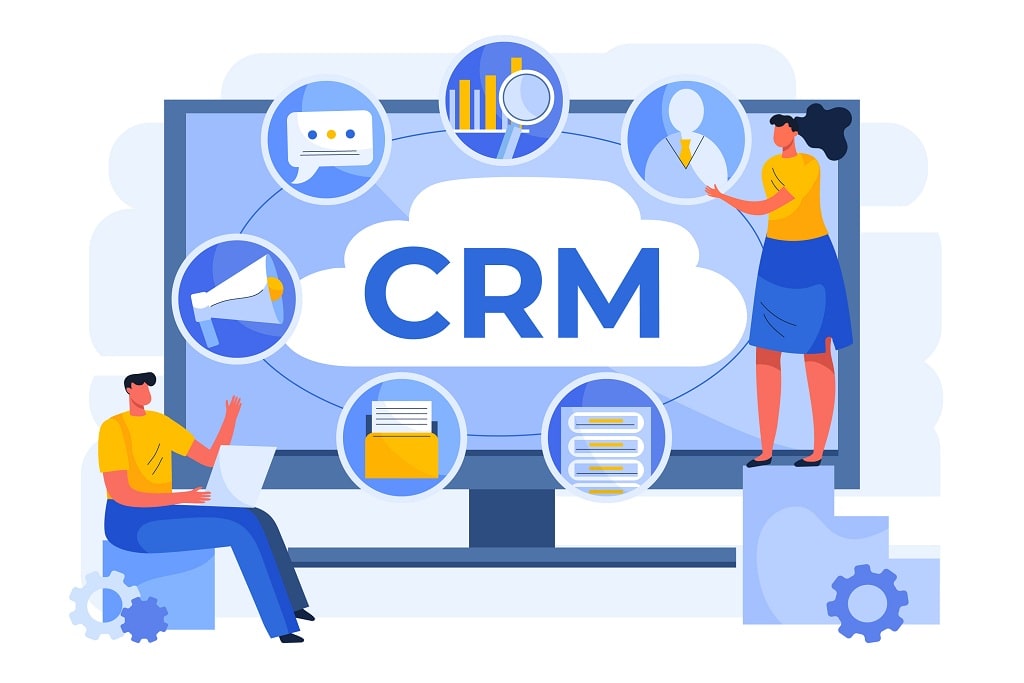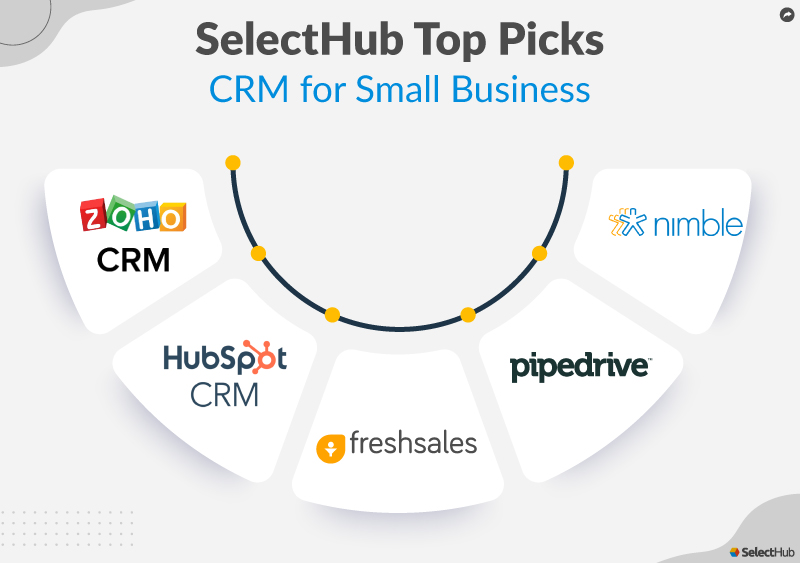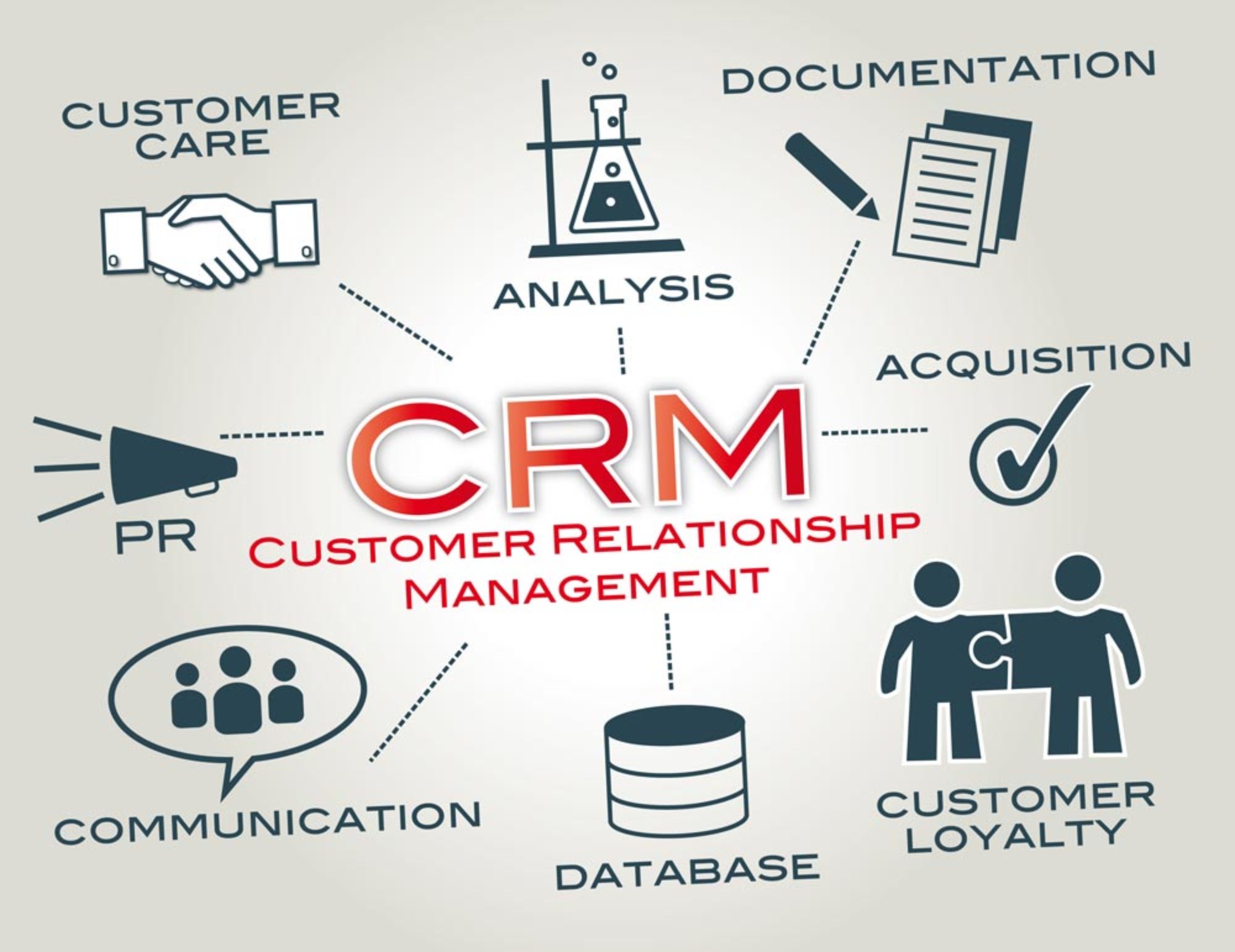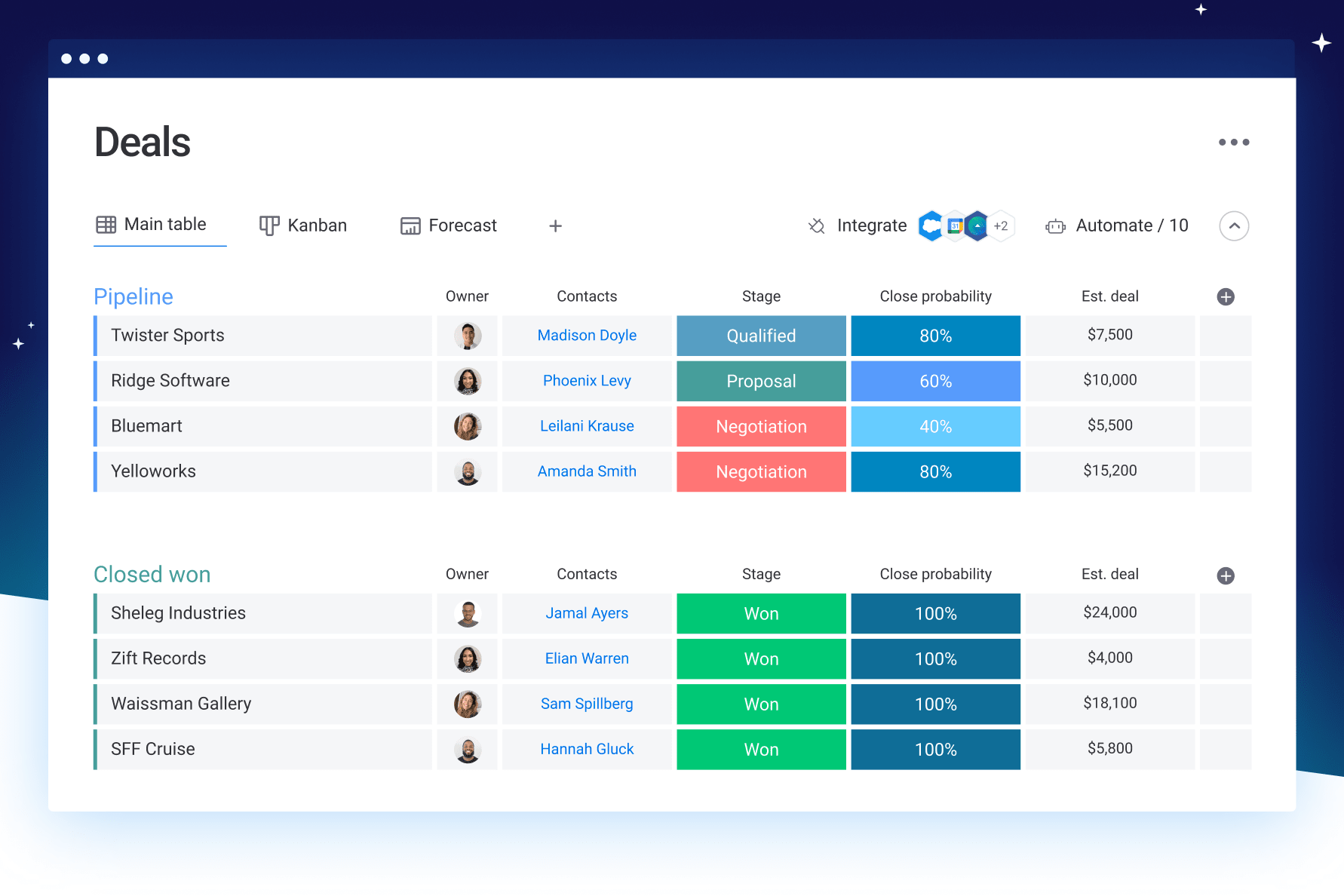Unlocking Growth: The Ultimate Guide to the Best CRM Systems for Small Agencies

Introduction: Why Your Small Agency Needs a CRM
In the fast-paced world of small agencies, where every client relationship, every lead, and every project matters, staying organized and efficient is not just a good idea; it’s a necessity. That’s where a Customer Relationship Management (CRM) system comes in. Think of it as the central nervous system of your agency, connecting all the vital functions – from lead generation to project completion – and allowing you to work smarter, not harder.
For small agencies, the right CRM can be the difference between struggling to keep up and scaling your business to new heights. It’s not just about managing contacts; it’s about building relationships, streamlining workflows, and ultimately, driving revenue. But with a plethora of CRM solutions on the market, choosing the right one can feel overwhelming. This comprehensive guide will cut through the noise and help you identify the best CRM systems specifically tailored for small agencies, considering factors like affordability, ease of use, features, and scalability.
What is a CRM and Why Does Your Agency Need One?
Before we dive into specific CRM recommendations, let’s clarify what a CRM is and why it’s so crucial for small agencies. A CRM is essentially a software solution designed to manage all your interactions with current and potential customers. It acts as a centralized hub for all your customer data, including contact information, communication history, sales interactions, project details, and more.
Here’s a breakdown of why a CRM is invaluable for your agency:
- Centralized Data: No more scattered spreadsheets or lost emails. A CRM consolidates all client information in one accessible place, making it easy for your team to find what they need when they need it.
- Improved Organization: CRMs help you organize your leads, contacts, and projects, ensuring nothing falls through the cracks. You can track the status of each project, set reminders, and schedule follow-ups.
- Enhanced Communication: With a CRM, you can personalize your communication with clients, track email opens and clicks, and automate follow-up sequences. This leads to more effective communication and stronger relationships.
- Streamlined Sales Process: CRMs automate many of the manual tasks associated with the sales process, such as lead qualification, opportunity tracking, and proposal generation. This frees up your sales team to focus on closing deals.
- Better Customer Service: By having all customer information at your fingertips, you can provide faster, more personalized support. This leads to happier clients and increased customer loyalty.
- Data-Driven Insights: CRMs provide valuable data and analytics on your sales, marketing, and customer service efforts. This data can be used to identify areas for improvement and make data-driven decisions.
- Increased Efficiency: By automating tasks and streamlining workflows, CRMs save your team time and reduce the risk of errors. This leads to increased productivity and efficiency.
In short, a CRM is a powerful tool that can help your small agency grow its business, improve customer relationships, and boost its bottom line. It’s an investment that pays off in the long run by saving time, reducing costs, and increasing revenue.
Key Features to Look for in a CRM for Small Agencies
Not all CRMs are created equal. When choosing a CRM for your small agency, it’s essential to consider the specific features that will benefit your business. Here are some key features to look for:
- Contact Management: This is the core function of any CRM. It should allow you to store and manage all your contact information, including names, email addresses, phone numbers, and other relevant details.
- Lead Management: The ability to track and manage leads is crucial for converting prospects into customers. Look for features like lead scoring, lead nurturing, and lead assignment.
- Sales Automation: Automate repetitive sales tasks, such as sending follow-up emails, scheduling appointments, and generating proposals. This frees up your sales team to focus on closing deals.
- Workflow Automation: Automate your agency’s workflows, such as project onboarding, client communication, and invoicing. This ensures consistency and reduces the risk of errors.
- Reporting and Analytics: Gain insights into your sales, marketing, and customer service efforts with robust reporting and analytics features. This data can be used to identify areas for improvement and make data-driven decisions.
- Integration Capabilities: Ensure the CRM integrates with the other tools you use, such as email marketing platforms, project management software, and accounting software. This will streamline your workflows and improve efficiency.
- Mobile Accessibility: Access your CRM from anywhere with a mobile app or a responsive web interface. This allows your team to stay connected and productive on the go.
- Customization Options: The ability to customize the CRM to meet your agency’s specific needs is essential. Look for features like custom fields, custom reports, and the ability to tailor the user interface.
- Ease of Use: The CRM should be intuitive and easy to use, even for those with no prior CRM experience. A user-friendly interface will encourage adoption and ensure that your team is actually using the system.
- Affordability: Consider the pricing structure of the CRM and choose a plan that fits your budget. Many CRMs offer different pricing tiers based on the number of users and features.
By prioritizing these features, you can choose a CRM that empowers your small agency to achieve its goals and thrive in a competitive market.
Top CRM Systems for Small Agencies: A Detailed Comparison
Now, let’s dive into some of the best CRM systems specifically designed for small agencies. We’ll compare their key features, pricing, ease of use, and overall suitability for your business.
1. HubSpot CRM
Overview: HubSpot CRM is a popular and powerful CRM system that offers a free version with a wide range of features. It’s known for its user-friendly interface, comprehensive marketing tools, and seamless integration with other HubSpot products. It is a great option for small agencies looking for a free CRM with room to grow.
Key Features:
- Free Forever Plan: Offers a generous free plan with unlimited users and contacts.
- Contact Management: Stores and manages all your contact information, including detailed contact profiles.
- Deal Tracking: Tracks your sales pipeline and manages deals from start to finish.
- Email Marketing: Send email marketing campaigns and track their performance.
- Marketing Automation: Automate your marketing tasks, such as lead nurturing and email sequences.
- Reporting and Analytics: Provides detailed reports on your sales and marketing performance.
- Integration: Integrates with a wide range of other tools, including Gmail, Outlook, and social media platforms.
Pros:
- Free plan is incredibly generous and feature-rich.
- User-friendly interface makes it easy to learn and use.
- Comprehensive marketing automation capabilities.
- Excellent integration with other HubSpot products.
- Scalable to accommodate growing agencies.
Cons:
- Free plan has limitations on some features, such as the number of emails you can send.
- More advanced features require a paid subscription.
- Can be overwhelming for agencies that only need basic CRM functionality.
Pricing: Free plan available. Paid plans start at $45 per month.
Ideal for: Small agencies that need a comprehensive CRM with strong marketing automation capabilities and are looking for a scalable solution.
2. Pipedrive
Overview: Pipedrive is a sales-focused CRM that’s known for its intuitive interface and visual sales pipeline. It’s designed to help sales teams manage their leads, track deals, and close more sales. It’s a great choice for agencies that prioritize sales efficiency.
Key Features:
- Visual Sales Pipeline: Provides a clear and visual overview of your sales pipeline.
- Deal Tracking: Tracks deals through each stage of the sales process.
- Lead Management: Manages leads and tracks their progress.
- Sales Automation: Automates repetitive sales tasks, such as sending emails and scheduling appointments.
- Reporting and Analytics: Provides reports on your sales performance.
- Integration: Integrates with a variety of other tools, including email, calendar, and accounting software.
Pros:
- User-friendly interface and easy to learn.
- Visual sales pipeline makes it easy to track deals.
- Strong sales automation features.
- Mobile app for on-the-go access.
- Affordable pricing.
Cons:
- Less focus on marketing automation compared to other CRMs.
- Limited features in the lower-priced plans.
- Can be less suitable for agencies that need a comprehensive marketing solution.
Pricing: Plans start at $14.90 per user per month (billed annually).
Ideal for: Small agencies that are heavily focused on sales and need a CRM that’s easy to use and helps them close deals.
3. Zoho CRM
Overview: Zoho CRM is a comprehensive CRM system that offers a wide range of features, including sales, marketing, and customer service tools. It’s a good choice for agencies that need a versatile CRM that can handle all aspects of their business. It is also a very affordable CRM option.
Key Features:
- Contact Management: Stores and manages all your contact information.
- Lead Management: Tracks and manages leads.
- Sales Automation: Automates sales tasks, such as sending emails and scheduling appointments.
- Marketing Automation: Automates marketing tasks, such as email marketing and social media posting.
- Customer Service: Provides customer service tools, such as help desk and live chat.
- Reporting and Analytics: Provides detailed reports on your sales, marketing, and customer service performance.
- Integration: Integrates with a wide range of other tools.
Pros:
- Comprehensive feature set.
- Affordable pricing.
- Customization options.
- Integration with other Zoho products.
- Good customer support.
Cons:
- Interface can be overwhelming at times.
- Can take some time to learn all the features.
- Some features may be more complex than what small agencies need.
Pricing: Free plan available. Paid plans start at $14 per user per month (billed annually).
Ideal for: Small agencies that need a comprehensive CRM with a wide range of features and are looking for an affordable solution.
4. Agile CRM
Overview: Agile CRM is a sales, marketing, and customer service CRM that’s designed for small businesses. It’s known for its ease of use, affordability, and comprehensive feature set. It is a great option for agencies that want a CRM that can handle all aspects of their business without breaking the bank.
Key Features:
- Contact Management: Stores and manages all your contact information.
- Lead Management: Tracks and manages leads.
- Sales Automation: Automates sales tasks, such as sending emails and scheduling appointments.
- Marketing Automation: Automates marketing tasks, such as email marketing and social media posting.
- Customer Service: Provides customer service tools, such as help desk and live chat.
- Reporting and Analytics: Provides detailed reports on your sales, marketing, and customer service performance.
- Integration: Integrates with a wide range of other tools.
Pros:
- User-friendly interface and easy to learn.
- Affordable pricing.
- Comprehensive feature set.
- Good customer support.
- Free plan available.
Cons:
- Interface can feel a bit dated.
- Some features may be less polished than those of competitors.
- Free plan has limitations.
Pricing: Free plan available. Paid plans start at $9.99 per user per month (billed annually).
Ideal for: Small agencies that need a comprehensive CRM with a wide range of features and are looking for an affordable and easy-to-use solution.
5. Freshsales (by Freshworks)
Overview: Freshsales is a sales CRM that’s designed to help sales teams close deals faster. It’s known for its user-friendly interface, powerful sales automation features, and affordable pricing. It is a great option for sales-focused agencies.
Key Features:
- Contact Management: Stores and manages all your contact information.
- Lead Management: Tracks and manages leads.
- Sales Automation: Automates sales tasks, such as sending emails and scheduling appointments.
- Reporting and Analytics: Provides detailed reports on your sales performance.
- Integration: Integrates with a variety of other tools.
- Built-in Phone and Email: Includes built-in phone and email features.
Pros:
- User-friendly interface.
- Powerful sales automation features.
- Affordable pricing.
- Built-in phone and email features.
- Good customer support.
Cons:
- Less focus on marketing automation compared to other CRMs.
- Can be less suitable for agencies that need a comprehensive marketing solution.
- Some features may be limited in the lower-priced plans.
Pricing: Free plan available. Paid plans start at $15 per user per month (billed annually).
Ideal for: Small agencies that are heavily focused on sales and need a CRM that’s easy to use, helps them close deals, and offers built-in phone and email features.
How to Choose the Right CRM for Your Small Agency
Choosing the right CRM is a critical decision for your small agency. Here’s a step-by-step guide to help you make the right choice:
- Assess Your Needs: Before you start evaluating CRM systems, take the time to assess your agency’s specific needs. What are your current pain points? What are your goals for growth? What features are essential for your business?
- Define Your Budget: Determine how much you’re willing to spend on a CRM system. Consider the pricing structure of different CRMs and choose a plan that fits your budget. Remember to factor in the cost of training and implementation.
- Research Your Options: Research the different CRM systems available and compare their features, pricing, and reviews. Consider the options we’ve discussed above, as well as other popular CRMs like Salesforce, Insightly, and Zendesk Sell.
- Try Free Trials: Most CRM systems offer free trials. Take advantage of these trials to test out the features and see if the CRM is a good fit for your agency.
- Consider Ease of Use: Choose a CRM that’s user-friendly and easy to learn. A complex CRM will be difficult for your team to adopt, which will defeat the purpose of the system.
- Evaluate Integration Capabilities: Make sure the CRM integrates with the other tools you use, such as email marketing platforms, project management software, and accounting software.
- Check for Customization Options: The CRM should allow you to customize it to meet your agency’s specific needs.
- Read Reviews and Case Studies: Read reviews and case studies from other small agencies to learn about their experiences with different CRM systems.
- Get Feedback from Your Team: Involve your team in the decision-making process. Get their feedback on the different CRM options and choose the one that best meets their needs.
- Prioritize Customer Support: Choose a CRM provider that offers good customer support.
By following these steps, you can choose the right CRM for your small agency and set your business up for success.
Implementing Your New CRM: Tips for Success
Once you’ve chosen your CRM, it’s time to implement it. Here are some tips to ensure a smooth and successful implementation:
- Plan Your Implementation: Create a detailed implementation plan that outlines the steps you need to take to set up the CRM, migrate your data, and train your team.
- Clean Your Data: Before you migrate your data to the CRM, clean it up and ensure it’s accurate and up-to-date.
- Customize the CRM: Customize the CRM to meet your agency’s specific needs. Add custom fields, create custom reports, and tailor the user interface.
- Train Your Team: Provide comprehensive training to your team on how to use the CRM. This will ensure that they are comfortable with the system and can use it effectively.
- Encourage Adoption: Encourage your team to use the CRM by highlighting its benefits and providing ongoing support.
- Monitor and Optimize: Monitor the performance of the CRM and make adjustments as needed. Optimize your workflows and processes to ensure that you’re getting the most out of the system.
- Seek Ongoing Support: Don’t hesitate to reach out to the CRM provider for support if you have any questions or issues.
By following these tips, you can ensure a successful CRM implementation and maximize the benefits of your new system.
CRM Best Practices for Small Agencies
To truly leverage the power of your CRM, it’s essential to follow best practices. Here are some key strategies to implement:
- Keep Your Data Clean and Updated: Regularly review and update your contact information, lead data, and deal information. Inaccurate data can lead to lost opportunities and poor communication.
- Segment Your Audience: Use your CRM to segment your audience based on demographics, behaviors, and interests. This allows you to personalize your communication and target your marketing efforts more effectively.
- Automate Repetitive Tasks: Leverage the automation features of your CRM to automate repetitive tasks, such as sending follow-up emails, scheduling appointments, and generating reports.
- Track Key Metrics: Monitor key metrics, such as lead conversion rates, sales cycle length, and customer lifetime value. This data will help you identify areas for improvement and measure the success of your CRM implementation.
- Integrate Your CRM with Other Tools: Integrate your CRM with your other business tools, such as your email marketing platform, project management software, and accounting software. This will streamline your workflows and improve efficiency.
- Train Your Team Regularly: Provide ongoing training to your team to ensure that they are up-to-date on the latest CRM features and best practices.
- Regularly Review and Optimize Your Workflows: Review your workflows regularly and make adjustments as needed to optimize your processes.
- Foster a CRM-Focused Culture: Encourage your team to use the CRM consistently and make it an integral part of your agency’s culture.
By implementing these best practices, you can maximize the value of your CRM and drive growth for your small agency.
Conclusion: The Future of Small Agencies and CRMs
In conclusion, choosing the right CRM is a critical investment for any small agency looking to thrive in today’s competitive market. By understanding the benefits of a CRM, carefully evaluating your needs, and choosing a system that aligns with your goals, you can unlock significant improvements in your sales, marketing, and customer service efforts.
The CRM landscape is constantly evolving, with new features and innovations emerging regularly. Small agencies that embrace CRM technology and adopt best practices will be well-positioned to adapt to these changes and stay ahead of the curve. As your agency grows, remember to revisit your CRM strategy and ensure that your system continues to meet your evolving needs. The future of small agencies is undoubtedly intertwined with the power of CRM. By making the right choices today, you can set your agency on a path to sustainable growth, stronger client relationships, and long-term success.

